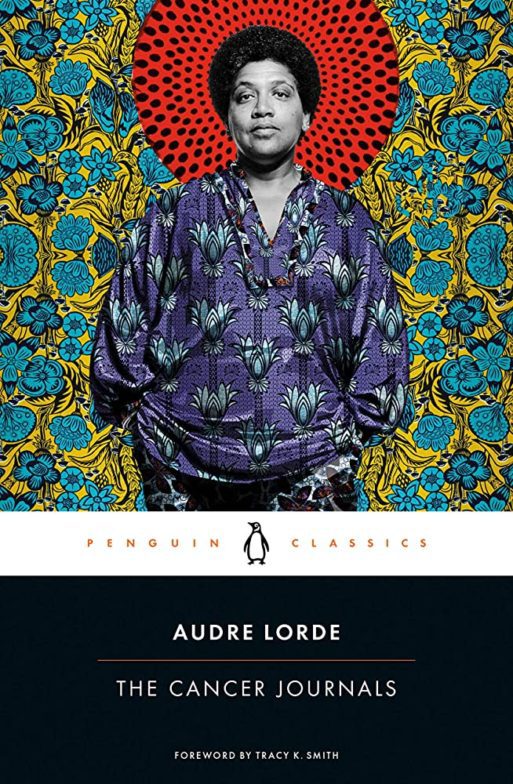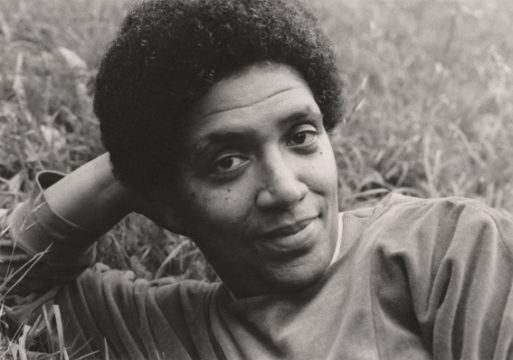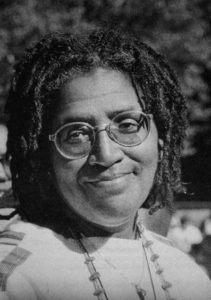 “The Cancer Journals” by Audre Lorde is an extremely personal account of one woman’s experience with breast cancer and the plethora of emotions that accompany a cancer diagnosis. The book weaves her personal journal entries together with a more traditional memoir style, and the result is a very emotional read.
“The Cancer Journals” by Audre Lorde is an extremely personal account of one woman’s experience with breast cancer and the plethora of emotions that accompany a cancer diagnosis. The book weaves her personal journal entries together with a more traditional memoir style, and the result is a very emotional read.

Audre Lorde
Credit: letterstoaudre.wordpress.com
Audre Lorde was an accomplished poet and activist during her lifetime. She was a lesbian and a self-described black woman warrior poet. At the time “The Cancer Journals” was published in 1980, she was 46 years old. She died in 1992 from liver cancer.
Lorde wrote the essay portions of the book after her mastectomy surgery. Most of the journal entries were written before the operation.
A substantial portion of Lorde’s writings deals with her struggle to come to terms with the loss of her right breast. The way she recounts her anxieties and internal conflicts about the operation are very detailed. She describes the hectic days between the biopsy that revealed a malignant tumor and her mastectomy surgery. She writes, “…I had to examine carefully the pros and cons of every possibility while being constantly and acutely aware that so much was still not known.” She considered many different options regarding treatment, including diet, vitamin therapy, experimental immunotherapies and others before deciding that surgery was the most appropriate choice.
Lorde also weighed the possibilities of chemotherapy and radiation, but felt strongly that those were “in and of themselves carcinogenic.” Though she notes that experimental therapies were an option, they were unproven at the time. And so she decided on a modified radical mastectomy. She recalls how difficult the decision was in one of her journal entries:
“My breasts have always been so very precious to me since I accepted having them…I think I am prepared to lose [my breast] now in a way I was not quite ready to last November, because now I really see it as a choice between my breast and my life, and in that view there cannot be any question.”
Though her breast was an important part of her body and sense of womanhood, Lorde could not let it decide her fate. She would be physically different after her mastectomy, but that would not override her will to live.

Credit: cla.purdue.edu
One of the more uplifting aspects and bigger takeaways of the book is the support that Lorde received from friends and family at this terrifying time. For instance, Lorde describes coming out of the biopsy that revealed her malignant tumor and how overwhelmingly cold she felt. She asked the nurses multiple times for more blankets, to no avail. Though the hospital seemed to fail her in that moment, she writes about the support she received:
“Our friends came and were there, loving and helpful and there, brought coats to pile upon my bed and then a comforter and blankets because the hospital had no spare blankets, they said, and I was so desperately chilled from the cold recovery room.”
She mentions numerous times how the love and support of those closest to her made the ordeal a bit more bearable. “…I felt Beth Israel Hospital wrapped in a web of woman love and strong wishes of faith and hope for the whole time I was there, and it made self-healing more possible, knowing I was not alone,” she writes. “Throughout the hospitalization and for some time after, it seemed that no problem was too small or large to be shared and handled.” It is clear from her memoir that a dedicated support group is essential for cancer patients, or anyone dealing with a terminal illness.
The Power of Poetry
Audre Lorde could eloquently describe her feelings and frustrations with her disease because she was a master of the English language. Since she was a poet, she oftentimes used brilliant, beautiful metaphors to aid her descriptions. For example, in one of her journal entries she writes, “Spring comes, and still I feel despair like a pale cloud waiting to consume me, engulf me like another cancer, swallow me into immobility, metabolize me into cells of itself; my body, a barometer.”
“The Cancer Journals” is a powerful book, one that illuminates the feelings of terror, anxiety, fear of the unknown and despair that can accompany a cancer diagnosis. Though much of the book revolves around her despair, Lorde does end on a relatively positive note.
“At times I miss my right breast, the actuality of it, its presence, with a great and poignant sense of loss. But in the same way, and just as infrequently, as I sometimes miss being 32, at the same time knowing that I have gained from the very loss I mourn…I would never have chosen this path, but I am very glad to be who I am, here.”
“The Cancer Journals” can be difficult to read at times, but it is an important book for anyone who is dealing with cancer in some way. Though she was not happy with the fact she had cancer, Audre Lorde came to terms with her condition and its necessary difficulties. Her courage is a source of inspiration and hope.

 “The Cancer Journals,” by Audre Lorde
“The Cancer Journals,” by Audre Lorde


 First the Wealth Gap, Now the U.S. Has a Growing Health Gap
First the Wealth Gap, Now the U.S. Has a Growing Health Gap
 How to Comfort A Dying Loved One
How to Comfort A Dying Loved One
 Our Annual Seven Holiday Gifts for Someone Who Is Grieving, 2024 Edition
Our Annual Seven Holiday Gifts for Someone Who Is Grieving, 2024 Edition














